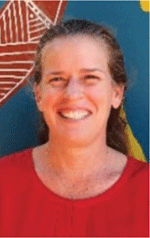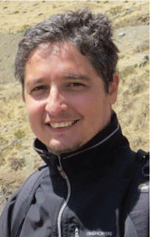Mapping traditional ecological knowledge of Sea Country to understand biodiversity and areas of cultural importance
Claire Streten A E , Harriet Davies B , Ronen Galaiduk B , Teresa Lui Yuen C and Peter Sheldon DA Australian Institute of Marine Science, Arafura Timor Research Facility, PO Box 41775, Casuarina, NT 0811, Australia.
B Australian Institute of Marine Science, Indian Ocean Marine Research Centre, University of Western Australia, M096 35 Stirling Highway, Crawley, WA 6009, Australia.
C ENI, ENI House, PO Box 6862, East Perth, WA 6892, Australia.
D Thamarrurr Rangers, Kanarlda Street, Wadeye, NT 0822, Australia.
E Corresponding author. Email: c.streten@aims.gov.au
The APPEA Journal 60(2) 532-536 https://doi.org/10.1071/AJ19042
Accepted: 13 February 2020 Published: 15 May 2020
Abstract
Understanding the values of traditional landowners is key to effective management of industrial developments. The Northern Territory (NT) coast and marine estate is host to significant oil and gas development, yet is relatively undisturbed and is rich in biodiversity and cultural heritage. Over 80% of the NT coastline is owned by Aboriginal Traditional Owners. There is an increasing push by Traditional Owners to formally recognise their connection to the marine environment and the deep traditional ecological knowledge (TEK) these strong connections cultivate. Documenting TEK provides an effective tool for communities to communicate with industry and government regarding ecologically and culturally important sites.
Keywords: environmental management, Indigenous groups, Traditional Owner–industry–government partnerships.

Dr Claire Streten is a molecular scientist and the Australian Institute of Marine Science’s Darwin-based Science Leader. In this role, Claire develops and leads research projects, many of which are developed in partnership with industry, government, Indigenous and research sectors. Much of Claire’s recent research has revolved around monitoring effects of industrial discharges in the receiving environment, including from dredge operations, refinery discharge and run-off from rehabilitation sites. Claire was awarded her PhD from Charles Darwin University. |

Harriet Davies is a marine spatial scientist at the University of Western Australia and Australian Institute of Marine Science. Harriet’s research focuses on bridging the gap between Indigenous and Western science systems within the marine environment and facilitating community-driven marine management solutions. Harriet received her Bachelor of Science (Honours) from Murdoch University in Perth. |

Dr Ronen Galaiduk is a spatial data scientist with the Australian Institute of Marine Science in Perth. Ronen’s work involves multidisciplinary research in the marine environment, which uses his expertise with the spatial data applied in the field of fish and benthic marine ecology. Ronen works in close collaboration with industry, Traditional Owners and other researchers from across Australia. Ronen was awarded his PhD from Curtin University. |

Teresa Lui Yuen is an environmental engineer with 13 years experience in the resources industry. In her current role as Senior Environmental Advisor at ENI, Teresa coordinates all aspects of environmental management for ENI’s Australian operations and is involved in the delivery of environmental studies and sustainability projects. Teresa received her Bachelor of Environmental Engineering (Honours) from University of Western Australia. |

Peter Sheldon is the Ranger Manager with the Thamarrurr Rangers. Peter has been working in the Thamarrurr Region for 3 years. In this role he is required to secure funding for land and sea management work and ensure that work completed serves the Wadeye community and the funding organisation while also developing the capacity of the Ranger workforce. Peter received his Master of Science (Forest Ecology and Management) from Albert Ludwig University of Freiburg. |

Thamarrurr Rangers were established in 2001 by the Traditional Owners of the Thamarrurr Region. The Rangers work across 18 000 km2 and 240 km of coastline of the Northern Territory Western Coastline. |


